
Best Museums & Art Galleries in São Paulo, Brazil
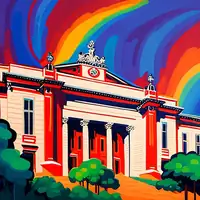
1. São Paulo Museum of Art (MASP)
Known for its striking modernist architecture and suspended structure, MASP holds one of the most important art collections in the Southern Hemisphere. It challenges the stereotype that only European and North American museums have vast art collections.
- Collection Diversity: Features art from different cultures and periods.
- Iconic Architecture: Designed by Lina Bo Bardi, it is a landmark itself.
- Central Location: Situated on Paulista Avenue, easily accessible.
- Educational Programs: Offers workshops and lectures.
- Exhibitions: Hosts temporary exhibitions throughout the year.
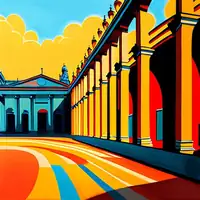
2. Pinacoteca do Estado de São Paulo
The oldest art museum in São Paulo, Pinacoteca houses primarily Brazilian art, offering visitors a comprehensive look at Brazil’s cultural and artistic evolution. It addresses the challenge of showcasing national heritage.
- Historic Building: Housed in a historical structure that adds to its appeal.
- Brazilian Art Focus: Emphasizes works by Brazilian artists.
- Sculpture Garden: Offers a tranquil outdoor space for visitors.
- Kids’ Programs: Provides educational activities for children.
- Café and Bookstore: Enhances the visitor experience with rest areas.
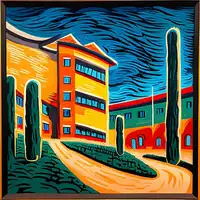
3. Museum of Contemporary Art, University of São Paulo (MAC USP)
Home to a vast collection of contemporary works, MAC USP pushes boundaries in modern art, making contemporary art accessible and engaging. It aims to demystify modern art for the general public.
- Free Entry: Accessible to everyone without a fee.
- Contemporary Focus: Concentrates on modern and avant-garde artworks.
- Wide-Ranging Exhibitions: Frequently updates its showcase.
- Academic Ties: Connected to the University of São Paulo.
- Public Programs: Workshops and talks are open to the public.

4. Museu Afro Brasil
This museum is dedicated to African culture and its impact on Brazilian society, addressing the historical gap in recognizing Afro-Brazilian contributions. It offers an important perspective on Brazil's diverse heritage.
- Cultural Focus: Dedicated to African-descendant culture in Brazil.
- Educational Displays: Provides in-depth cultural and historical insights.
- Ethnographic Collection: Features artifacts and items of daily life.
- Outreach Programs: Engages with local communities.
- Green Space: Located in Ibirapuera Park, perfect for a stroll.
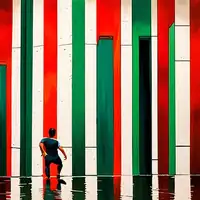
5. Museu do Futebol
Located in Pacaembu Stadium, this museum captures the deep love of football in Brazil, addressing the cultural identity linked with the sport. It's an interactive journey through Brazil's football history.
- Interactive Exhibits: Engages visitors of all ages interactively.
- Legends Gallery: Highlights the careers of football heroes.
- Stadium Setting: Offers a unique experience in an active stadium.
- Multimedia Presentations: Combines video and audio narratives.
- Sport History: Delves into the social impact of football in Brazil.
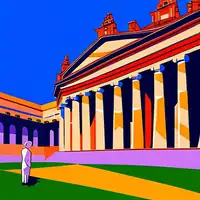
6. Museu da Imagem e do Som (MIS)
This museum showcases the dynamic world of music and audiovisual arts, addressing the challenge of documenting Brazil's rich entertainment history. It keeps pace with technological advancements in media.
- Multimedia Collections: Focuses on film, photography, and music.
- Trendy Location: Located in the vibrant area of Jardim Europa.
- Regular Festivals: Hosts events like film and music festivals.
- Archive Access: Offers extensive archives for research.
- Interactive Displays: Encourages visitor participation.
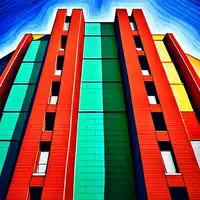
7. Instituto Tomie Ohtake
Named after the famed artist, this institute is dedicated to contemporary art and design, confronting the issue of traditional art-dominated spaces. It welcomes avant-garde and experimental works.
- Art and Design: Offers a blend of visual arts and design exhibitions.
- Unique Architecture: Features a distinctive colorful façade.
- Art Education: Workshops and seminars for budding artists.
- Café and Bookstore: Provides a space to relax and explore art books.
- Regular Exhibitions: Calendar filled with diverse art showcases.
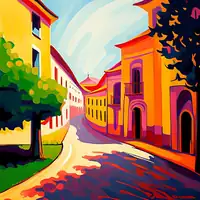
8. Museu Catavento
Geared towards science and technology, the museum intrigues visitors with interactive exhibits aimed at sparking curiosity in STEM fields. It solves the issue of limited access to engaging science education.
- Interactive Exhibits: Hands-on displays captivate young audiences.
- Scientific Themes: Covers a wide range of scientific topics.
- Family-Friendly: Suitable for kids and adults alike.
- Central Location: Easy to reach near the center of São Paulo.
- Educational Programs: Offers workshops for school groups.

9. Latin America Memorial
This cultural and political space celebrates Latin American unity and diversity through art, solving the visibility issue of Latin American identity in a global context. It offers both permanent and temporary exhibitions.
- Cultural Hub: Focuses on Latin American art and culture.
- Architectural Landmark: Designed by Oscar Niemeyer.
- Permanent Collection: Features works from across Latin America.
- Event Space: Hosts concerts and cultural events.
- Learning Opportunities: Offers lectures and cultural courses.
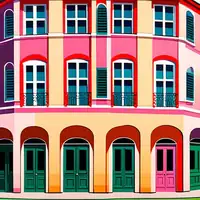
10. Casa das Rosas
A cultural space dedicated to literature and poetry, set in a beautiful 1930s mansion, addressing the lack of spaces for literary arts. It combines cultural heritage with urban tranquility.
- Architectural Beauty: Stunning mansion architecture with rose gardens.
- Literary Focus: Dedicated to poetry and literature events.
- Intimate Setting: Offers a peaceful retreat in the city.
- Bookshop and Café: Enhances the visitor experience with lovely cafes.
- Workshops: Conducts writing and poetic workshops.
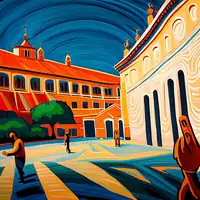
11. Museu da Casa Brasileira
Dedicated to Brazilian architecture and design, this museum showcases the evolution of domestic spaces, solving the problem of appreciating everyday design. It highlights the role of furniture and urban planning.
- Focus on Design: Exhibits on furniture and architecture.
- Traditional Building: Located in a preserved historic building.
- Temporary Exhibitions: Rotating design-themed showcases.
- Gardens: Features a well-maintained garden space.
- Design Awards: Known for its annual design competition.
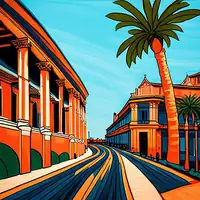
12. Museu dos Transportes Públicos Gaetano Ferolla
This museum explores the history of public transport in São Paulo, a city known for its commuting challenges. It reveals the evolution of the city’s infrastructure.
- Transport Focus: Collection includes trains, trolleys, and buses.
- Historical Insight: Charts the evolution of urban transport.
- Family-Friendly: Suitable for visits with children.
- Niche Interest: Ideal for public transport enthusiasts.
- Free Admission: Offers free entry to all visitors.
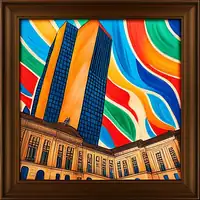
13. Brasiliana Guita and Jose Mindlin Library
While primarily a library, it hosts important exhibitions on Brazilian history, solving the problem of preserving rare books and manuscripts. It offers insight into the literary heritage of Brazil.
- Rare Collections: Houses rare books and historical documents.
- Research Facilities: Encourages academic research and study.
- Open to Public: Welcomes visitors interested in Brazilian history.
- Special Exhibitions: Occasionally hosts themed displays.
- Academic Environment: Situated in the University of São Paulo campus.
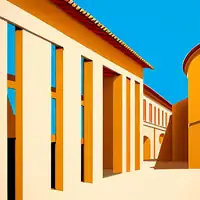
14. Museum of Sacred Art
Set in a former monastery, this museum houses a unique collection of sacred art, addressing the need to preserve religious heritage. It provides a spiritual journey through art.
- Religious Art: Focuses on sacred and religious artifacts.
- Historic Building: Occupies a former monastery, adding depth.
- Unique Collection: Features rare objects of devotion.
- Tranquil Setting: Offers a peaceful experience.
- Specialized Interest: Special draws for those interested in religious history.
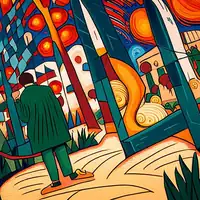
15. Museu Lasar Segall
Dedicated to the works of Lasar Segall, this museum tackles the challenge of recognizing individual artist contributions within the larger art scene. It showcases Segall's influence on modern and expressionist art.
- Artist Focus: Dedicated entirely to Lasar Segall's works.
- Historic Residence: Located in the artist's former home.
- Art Workshops: Conducts classes and copious workshops.
- Sculpture Garden: Offers additional exhibits outdoors.
- Small Scale: Provides an intimate look at Segall's life and work.

16. MuBE - Brazilian Museum of Sculpture and Ecology
Focusing on sculpture and environmental art, MuBE addresses the intersection of art and nature. It combines artistic creativity with ecological consciousness.
- Sculpture Focus: Dedicated to three-dimensional art forms.
- Ecological Themes: Integrates themes of nature and sustainability.
- Open-Air Space: Features outdoor installations.
- Architectural Appeal: Designed by architect Paulo Mendes da Rocha.
- Workshops: Hosts public art and ecological workshops.

17. Museu da Diversidade Sexual
Located in a metro station, this museum is a tribute to diversity, solving the visibility issue for LGBTQIA+ communities in cultural spaces. It encourages inclusivity through its exhibits.
- Focus on Diversity: Dedicated to sexuality and gender diversity.
- Central Access: Conveniently placed in a metro station hub.
- Activism: Provides a platform for LGBTQIA+ issues.
- Regular Exhibitions: Hosts frequently changing exhibits.
- Community Support: Engages with community-driven projects.
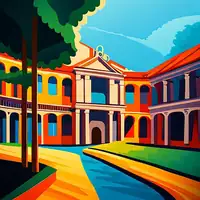
18. Museu Judaico de São Paulo
Set in the environment of a historic synagogue, the museum addresses the need for a cultural space to preserve Jewish heritage. It offers insight into Jewish life and history in Brazil.
- Cultural Preservation: Focuses on Jewish heritage and history.
- Historic Location: Built within a restored synagogue.
- Rotating Exhibits: Frequent new displays and programs.
- Religious Artifacts: Features unique objects of faith.
- Educational Programs: Conducts talks and community events.
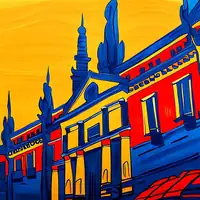
19. Museu do Café
Located outside São Paulo city to highlight the coffee trade's historical role in Brazil, it confronts the limited knowledge about coffee's cultural significance. It showcases the journey of coffee from cultivation to trade.
- Coffee Culture: Explores the history and impact of coffee in Brazil.
- Heritage Building: Located in a historical coffee trading building.
- Taste Sampling: Offers coffee tastings as part of the experience.
- Historic Displays: Features exhibits on traditional coffee cultivation.
- Educational Tours: Provides guided tours on coffee heritage.
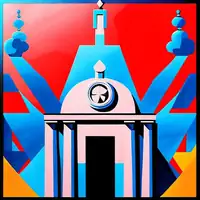
20. Museu de Arte Sacra dos Jesuítas
Situated in Embu das Artes, near São Paulo, it holds religious art from Jesuit missions, addressing the preservation of early colonial ecclesiastical art. It combines art with religious history.
- Eclectic Collection: Displays Jesuit and colonial religious art.
- Historic Town: Located in a town known for its art and crafts.
- Church Setting: Housed within a historic Jesuit church.
- Pilgrimage Interest: Attracts those interested in ecclesiastical history.
- Art Rotation: Regularly updates its exhibits to feature different themes.